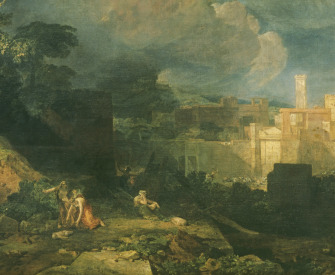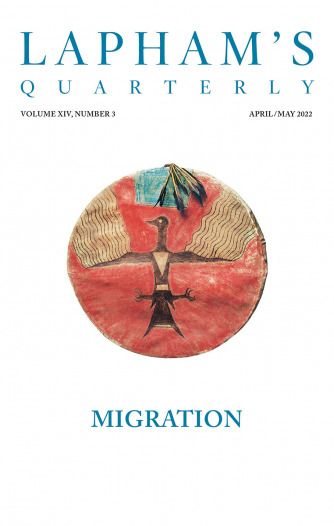I imagine that one of the first forms of behavior, like one of the first signals, may be reduced to this: “Keep me warm.”
—Michel Serres, 1982Elements of Surprise
H.G. Wells ponders the power of a little lump of stuff.
A certain professor of physics named Rufus was giving a course of afternoon lectures upon radium and radioactivity in Edinburgh. They were lectures that had attracted a very considerable amount of attention. He gave them in a small lecture theater that had become more and more congested as his course proceeded. At his concluding discussion it was crowded right up to the ceiling at the back, and there people were standing, standing without any sense of fatigue, so fascinating did they find his suggestions.
“And so,” said the professor, “we see that this radium, which seemed at first a fantastic exception, a mad inversion of all that was most established and fundamental in the constitution of matter, is really at one with the rest of the elements. It does noticeably and forcibly what probably all the other elements are doing with an imperceptible slowness. It is like the single voice crying aloud that betrays the silent breathing multitude in the darkness. Radium is an element that is breaking up and flying to pieces. But perhaps all elements are doing that at less perceptible rates. Uranium certainly is; thorium—the stuff of this incandescent gas mantle—certainly is; actinium. I feel that we are but beginning the list. And we know now that the atom, which once we thought hard and impenetrable, and indivisible and final and lifeless—lifeless—is really a reservoir of immense energy. That is the most wonderful thing about all this work. A little while ago we thought of the atoms as we thought of bricks, as solid building material, as substantial matter, as unit masses of lifeless stuff, and behold! These bricks are boxes, treasure boxes, boxes full of the intensest force. This little bottle contains about a pint of uranium oxide; that is to say about fourteen ounces of the element uranium. It is worth about a pound. And in this bottle, ladies and gentlemen, in the atoms in this bottle there slumbers at least as much energy as we could get by burning a hundred and sixty tons of coal. If, at a word, in one instant I could suddenly release that energy here and now, it would blow us and everything about us to fragments. If I could turn it into the machinery that lights this city, it could keep Edinburgh brightly lit for a week. But at present no man knows—no man has an inkling of how this little lump of stuff can be made to hasten the release of its store. It does release it, as a burn trickles. Slowly the uranium changes into radium, the radium changes into a gas called the radium emanation, and that again to what we call radium A, and so the process goes on, giving out energy at every stage, until at last we reach the last stage of all, which is, so far as we can tell at present, lead. But we cannot hasten it.”
The professor went on after a little pause. “Why is the change gradual?” he asked. “Why does only a minute fraction of the radium disintegrate in any particular second? Why does it dole itself out so slowly and so exactly? Why does not all the uranium change to radium and all the radium change to the next lowest thing at once? Why this decay by driblets—why not a decay en masse? Suppose presently we find it is possible to quicken that decay?”
The professor lifted his forefinger.
“Given that knowledge,” he said, “mark what we should be able to do! We should not only be able to use this uranium and thorium; not only should we have a source of power so potent that a man might carry in his hand the energy to light a city for a year, fight a fleet of battleships, or drive one of our giant liners across the Atlantic, but we should also have a clue that would enable us at last to quicken the process of disintegration in all the other elements, where decay is still so slow as to escape our finest measurements. Every scrap of solid matter in the world would become an available reservoir of concentrated force. Do you realize, ladies and gentlemen, what these things would mean for us?
“It would mean a change in human conditions that I can compare only to the discovery of fire, that first discovery that lifted man above the brute. We stand today toward radioactivity exactly as our ancestor stood toward fire before he had learned to make it. He knew it then only as a strange thing utterly beyond his control, a flare on the crest of the volcano, a red destruction that poured through the forest. So it is that we know radioactivity today. This—this is the dawn of a new day in human living. At the climax of that civilization which had its beginning in the hammered flint and the fire stick of the savage, just when it is becoming apparent that our ever-increasing needs cannot be borne indefinitely by our present sources of energy, we discover suddenly the possibility of an entirely new civilization. The energy we need for our very existence, and with which nature supplies us still so grudgingly, is in reality locked up in inconceivable quantities all about us. We cannot pick that lock at present, but—”
He paused. His voice sank so that everybody strained a little to hear him.
“—we will.”
He put up that lean finger again, his solitary gesture.
“And then,” he said. “Then that perpetual struggle for existence, that perpetual struggle to live on the bare surplus of nature’s energies will cease to be the lot of man. Man will step from the pinnacle of this civilization to the beginning of the next. I have no eloquence, ladies and gentlemen, to express the vision of man’s material destiny that opens out before me. I see the desert continents transformed, the poles no longer wildernesses of ice, the whole world once more Eden. I see the power of man reach out among the stars.”

H.G. Wells
From The World Set Free. Wells coined the term atomic bomb in this book, which was published more than thirty years before the first such bomb was dropped. In 1932 the physicist Leo Szilard read the novel, writing later that Wells had shown him “what the liberation of atomic energy on a large scale would mean.” Ten years later Szilard and Enrico Fermi set off the first controlled nuclear chain reaction. “I was quite aware of the dangers,” Szilard later recalled, “not because I am so wise but because I have read a book written by H.G. Wells called The World Set Free.”

